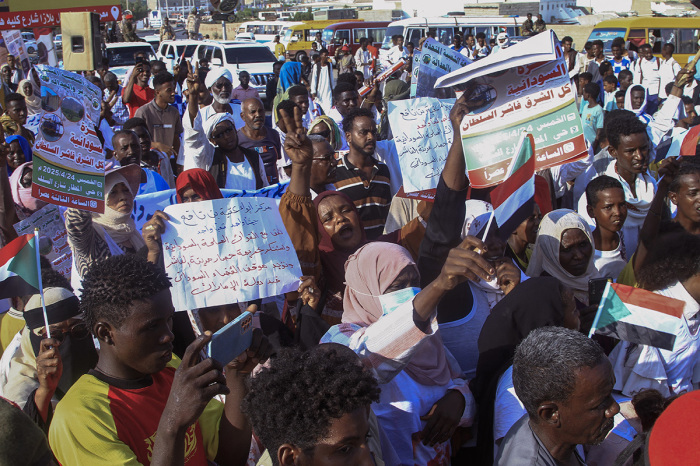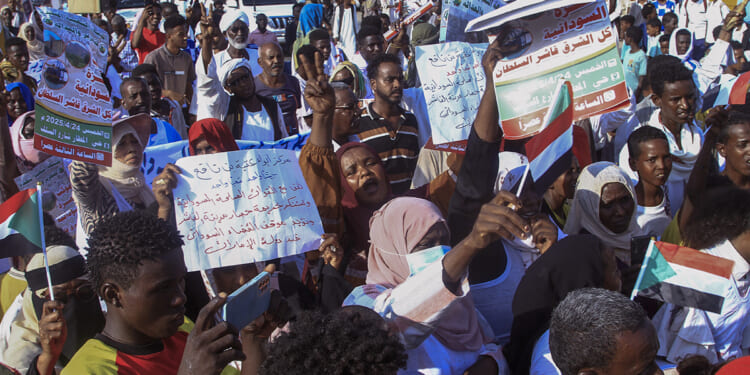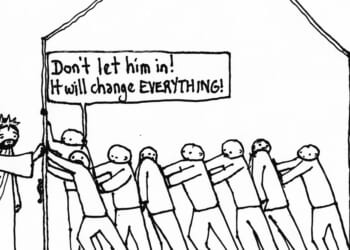
At least 260,000 civilians remain trapped in Sudan’s El Fasher city, the last government stronghold in Darfur, amid reports of indiscriminate shelling, mass killings and the occupation of churches by fighters. Christian groups are calling for the immediate creation of evacuation corridors and safe passage for those surrounded by the Rapid Support Forces, or RSF.
The appeal comes after what activists have described as a “brutal attack” in which an RSF drone strike killed 15 people and injured 12 others at a crowded market in El Fasher on Tuesday. The Resistance Committees in the city said the market bombing followed a string of killings meant “to bring the city to its knees and break the will of its residents,” France 24 reported.
The groups’ urgent call for action was issued just days before Ali Muhammad Ali Abd-Al-Rahman, also known by the name Ali Kushayb, attended his verdict hearing Monday at the International Criminal Court in The Hague, where the Sudanese militia chief was convicted for war crimes and crimes against humanity committed during brutal attacks in Darfur. The ICC found Abd-Al-Rahman guilty of several crimes, including rape, murder and torture committed between August 2003 and April 2004.
On the Friday prior to the drone strike, the RSF shelled the city with heavy artillery, targeting residential areas, markets, hospitals and displaced persons shelters.
“El Fasher has become an open morgue today due to the continuous heavy artillery shelling since dawn,” the El Fasher Resistance Committees Coordination said in a Facebook post, calling the strikes “violent and indiscriminate.”
Amid escalating violence, more than 100 Christian groups and humanitarian organizations have jointly called for safe, voluntary and dignified passage for civilians in El Fasher, where the siege has lasted 17 months, according to the U.K.-based group Christian Solidarity Worldwide.
The RSF is accused of blocking exits, erecting walls at the edge of the city, and targeting men and boys attempting to flee.
El Fasher has become the main battleground between the RSF and the Sudanese Armed Forces, or SAF, in Darfur and is the last city in the region not under RSF control. The siege has persisted despite a U.N. Security Council resolution demanding its removal.
In April, RSF forces took over the nearby Abu Souk and Zamzam camps, which housed more than 700,000 displaced people, and converted both into military bases.
Between May and September, RSF shelling struck the Sudan Episcopal Church in El Fasher six times, killing two people sheltering inside during a strike on Sept. 5 and injuring five others. Seven people remain missing following that incident, according to CSW.
The RSF advanced into the northwest of El Fasher on Sept. 16, entering both the Abu Souk camp and the al-Nasir neighborhood. The Christian community evacuated from the last two churches where they had been sheltering.
Reports indicate the RSF are now occupying the Pentecostal and Episcopal churches, using them to deploy troops and position snipers.
On Sept. 17, RSF fighters attacked a mosque near the Abu Souk camp, killing at least 70 people, including three medical personnel.
The U.N. Human Rights Office has warned that civilians face “impossible choices” with no safe exit from the city. They can either remain and risk death by bombardment and starvation or flee and face the threat of execution, sexual violence or abduction, CSW noted.
From outside the city, U.N. Humanitarian Coordinator Denise Brown described the immense difficulty of reaching the area.
Speaking from Tawila, about 31 miles from El Fasher, she said her team had to travel through three countries and use three airplanes, followed by a three-day drive to bypass frontlines. Tawila now hosts around 600,000 displaced people, mostly from El Fasher, U.N. News reported.
Brown called the region “one of the epicenters of a humanitarian catastrophe.
Across Sudan, over 12 million people have been displaced in what is now the world’s largest displacement crisis. Brown warned of deteriorating conditions in camps where access to clean water, sanitation, and food remains scarce. Diseases such as cholera, dengue fever and malnutrition are spreading rapidly.
Brown also mentioned widespread reports of conflict-related sexual violence, including rape, gang rape and sexual slavery.
Aid convoys carrying food and medical supplies have been stalled for months. Roads are blocked by mines and unexploded ordnance, and at least 120 aid workers have been killed since the war began in April 2023.
Sudan’s $4.2 billion humanitarian response plan remains only 25% funded, leaving frontline workers without resources.
Since the start of the civil war between the RSF and the military, at least 40,000 people have been killed, and more than 24 million are now acutely food insecure.
A joint appeal by local and international NGOs this week urged world powers to take urgent steps to prevent further massacres and to ensure aid access into El Fasher.
The World Health Organization said last week that Sudan’s cholera outbreak, initially declared in July last year, has now spread to all 18 states. More than 3,000 people have died of the disease in the past 14 months.

















